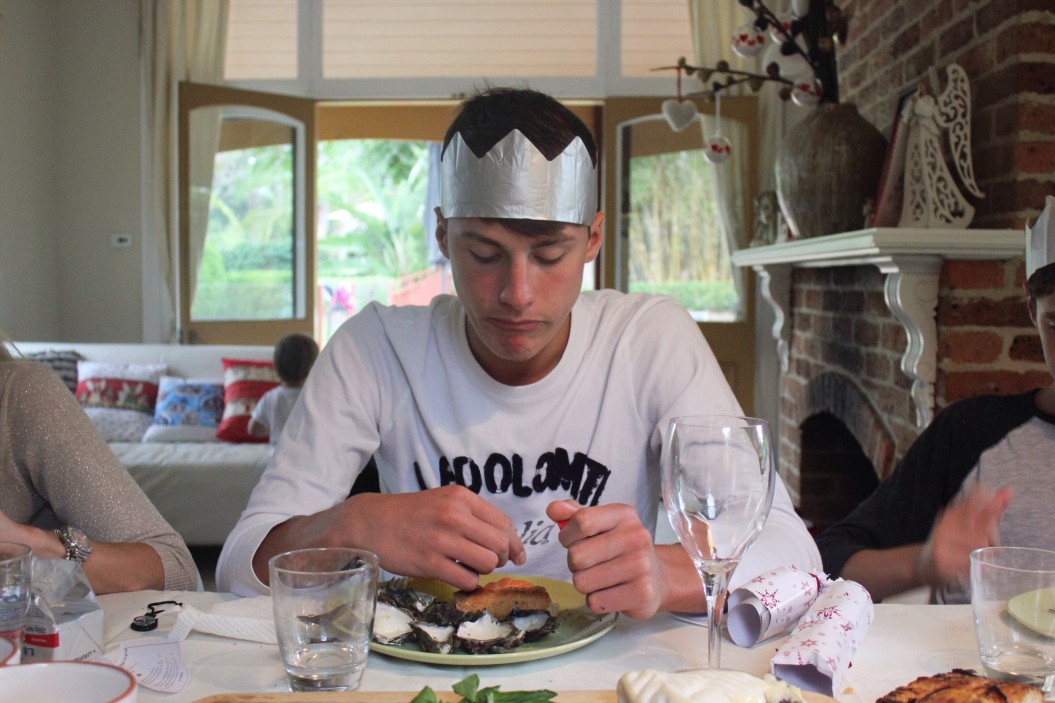Are your teens hard to talk to? Every family has its hectic daily routines and busy lives. You pass each other going in and out of the house. Teens stay sequestered in their rooms, tethered to their tech devices, reluctant to share what’s going on in their lives with you. Because you understand they are learning to be independent, you love them, and you want to be a good parent, you leave them alone.
I remember that my teenage son only talked frankly with me when he was belted safely into the passenger seat next to me in the car. And that was just some of the time. But if there are problems going on in their lives and they don’t tell you, the signs might be there if you can recognize them. You just need to put your own activities on pause, step back and take a look.
For example, my son once lost his temper and punched me in the arm. It left quite a large bruise. He had never done anything like that before. I got upset, then got over it and forgot about it because it didn’t happen again. But in hindsight, it was a bright red flag.
Teens and young adults suffering from depression sometimes show symptoms through aggressive behavior. I wish I had known that when it happened.
There are other signs too. My son couldn’t get out of bed sometimes. Was it typical teenage behavior? Even though he was extremely bright and an A student, he said he hated school and hated to get up to go there every morning. But every day, we made him get up and go to school anyway.
In hindsight, I realize he was miserable because he had clinical depression and an undiagnosed anxiety disorder. Unfortunately, we did not recognize or even think about getting him treated for anxiety.
Our son died by suicide ten years ago. I wish we had known back then what we know now, before it was too late. Reflecting on the past and wondering what my husband and I could have done differently, I realize we were too close to the problem. We loved that boy so much and wanted what was best for him. We thought giving him his space was the right thing to do.
But in doing so, we overlooked the red flags that warned something was seriously wrong with his mental health. I’m telling you this now so that you might put your crazy schedules on pause for a while and really look at what’s going on with your teens.
There are warning signs that signal suicidal ideation. If you know what to look for, you could prevent a tragedy and save a life.
Warning signs and risk factors
Here is a pneumonic that might help you remember them and remind you to keep an eye out.
IS PATH WARM
I Ideation; threatened or communicated
S Substance abuse; excessive or increased
P Purposeless, no reason for living
A Anxiety, agitation, insomnia
T Trapped, feeling no way out
H Hopelessness
W Withdrawal from friends, family, and society
A Anger, uncontrolled rage, seeking revenge
R Recklessness, risky acts, unthinking
M Mood changes, dramatic mood changes
There are also risk factors that can increase the likelihood of suicidal behavior.
HEALTH
Mental health conditions
Serious physical health conditions, including chronic pain
Traumatic brain injury
ENVIRONMENTAL
Access to lethal means, including firearms and drugs
Prolonged stress, such as harassment, bullying, relationship problems, or difficulty in school
Stressful life events, like rejection, divorce, financial crisis, other life transitions, or loss
Exposure to another person’s suicide or to graphic or sensationalized accounts of suicide
Lack of social support and sense of isolation
Stigma associated with asking for help
Lack of health care, especially mental health and substance abuse treatment
Cultural and religious beliefs
Unwillingness to seek help
HISTORICAL
Previous suicide attempts
Family history of suicide
Childhood abuse, neglect, or trauma
Start the conversation
What do you do if you see the signs? Start a conversation. Be frank. Ask a direct question, “Are you thinking of killing yourself?” Then get some help if you need to. Call your local crisis number, the Suicide Prevention Lifeline at 800-273-8255 or text the Crisis Text Line at 741741. They can help you figure out the next steps.
 A
Culture of Caring: A Suicide Prevention Guide for Schools (K-12) was
created as a resource for educators who want to know how to get started and
what steps to take to create a suicide prevention plan that will work for their
schools and districts. It is written from my perspective as a school principal
and survivor of suicide loss, not an expert in psychology or counseling. I hope
that any teacher, school counselor, psychologist, principal, or district
administrator can pick up this book, flip to a chapter, and easily find helpful
answers to the questions they are likely to have about what schools can do to
prevent suicide.
A
Culture of Caring: A Suicide Prevention Guide for Schools (K-12) was
created as a resource for educators who want to know how to get started and
what steps to take to create a suicide prevention plan that will work for their
schools and districts. It is written from my perspective as a school principal
and survivor of suicide loss, not an expert in psychology or counseling. I hope
that any teacher, school counselor, psychologist, principal, or district
administrator can pick up this book, flip to a chapter, and easily find helpful
answers to the questions they are likely to have about what schools can do to
prevent suicide.


